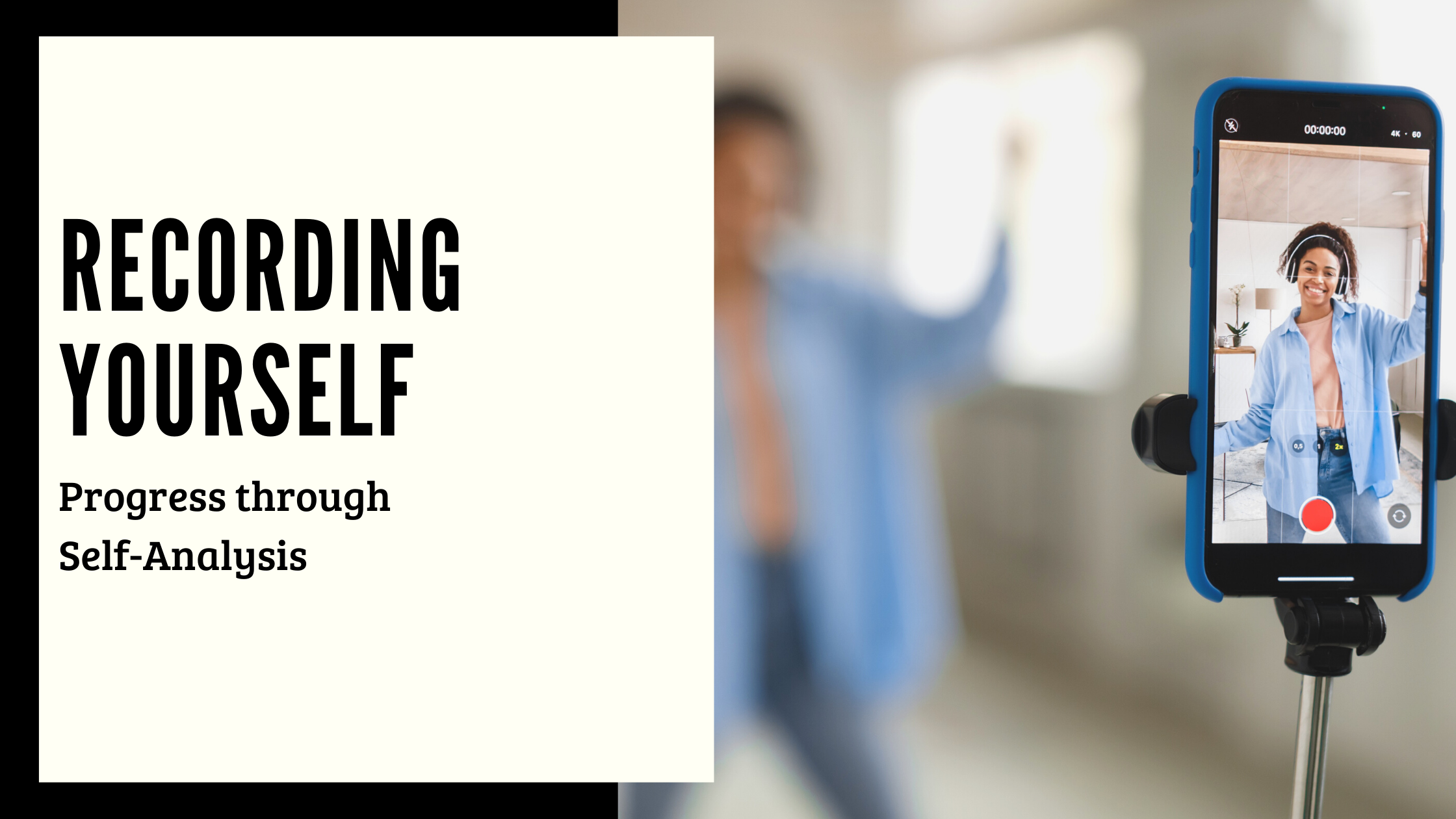Most people hate hearing their voice on tape. Even a voicemail playing back to them sounds “weird” and uncomfortable. But for singers, this is an important distaste to overcome. If you can’t listen to yourself as other people hear you, how can you truly understand your sound?
Start small with self-recording if it makes you uncomfortable: sing one of your exercises through your whole range and listen back. It’s not artful, but is it functional? Do you hear areas of discoordination or weakness? Does your voice sound like one voice from bottom to top, or are you creating different colors unintentionally?
From there, sing your best song for yourself– the one that you feel so confident with you can turn off your brain and really be expressive. Try not to think about your singing as you perform. It doesn’t matter if you’re performing for the voice memo app on your cell phone or using fancy studio equipment– either way, your goal is the same: sing with expression and authenticity. Use this recording as the benchmark for what you want all of your singing to sound like (and feel free to update your benchmark as time goes on and you improve!).
Listening to recordings of yourself might surprise you. Some things might sound better than you thought, and others, maybe worse. That’s OK! The important part of this process is being open-minded and listening as an impartial observer. Try not to respond emotionally when you hear yourself; instead, notice things as specifically as you can. Were all the pitches in tune? Are you having trouble maintaining good breathing during longer phrases? Answering questions like these will give you specific tasks that you can actively work on (before, of course, re-recording your song again to hear the improvements!).
If you choose to record videos of yourself, you will also gain valuable insight into your habits during performance. Are your shoulder slumping forward? (If so, maybe that’s connected to your struggle to sing longer phrases with breath control.) Are you connecting with your audience (in this case, the camera), or do you appear to be in your own world? Do you have a habit of fidgeting, or could you use movement to better support your voice and emotional expression?
Daring to incorporate this maybe-uncomfortable element into your practice will open up a world of possibilities to you as a singer. Stay calm and open-minded and see where this exploration takes you! Ready to assess with a teacher in your corner? Schedule your free consultation to learn more about how a Cardon Voice teacher can help you create a game plan with clear steps for your vocal success.

